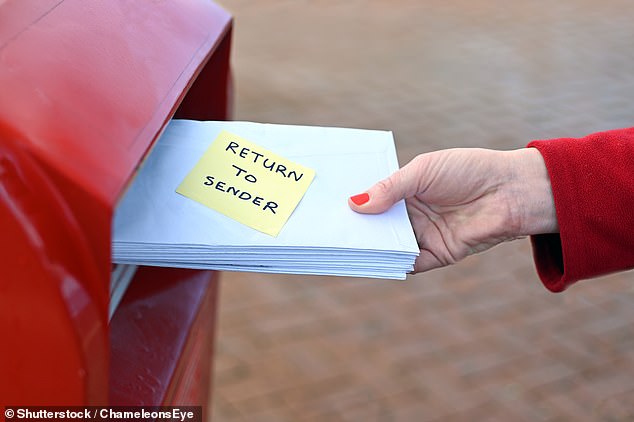Table of Contents
I have been an American Express customer for years. I used to have a Gold card, but cancelled it in 2007 and switched to a British Airways Premium Plus card.
However, I recently discovered that the Gold Card was never cancelled and I have been charged the annual membership fee for the past 17 years.
The initial fee was £160, but it later increased to £195. In total I paid about £2,400.
I’m sure I cancelled the old card over the phone in 2007, but Amex says it can’t verify this because it has deleted the call records in accordance with data protection regulations.
Card clash: MH is certain he cancelled his Gold card over the phone in 2007, but American Express has since deleted its records and he can’t prove that was the case (file image)
I only discovered the card was still active when I checked my direct debits and found that Amex was charging me twice a year, instead of once.
I know I should have noticed this sooner, but the two payments were several months apart and every time I saw one I assumed it was for my new Amex BA.
Worryingly, I have now been told that new cards have been mailed to me when the old ones expired (I think at least four) and have arrived at my old address.
I am concerned that this has affected my credit rating and that someone has a credit card in my name.
I spoke to Amex about this but there was no offer to refund the membership fees and I was told the manager refused to speak to me.. MH, London
Helen Crane, consumer rights campaigner at This is Money, replies: You thought you had this card from 2005 to 2007, but it turns out it’s been active for much longer.
To highlight how long you’ve been paying these fees, 2007 was the year the first iPhone went on sale, the last Harry Potter book was published and Gordon Brown became Prime Minister.
You told me that you updated Amex with your new address when you opened the BA credit card the same year, and that all your correspondence from that card goes to the right place.
Since you remained a customer, you believe the company should have contacted you to check whether you really wanted the cards to be sent to two different addresses. This way you would have been aware of their existence much earlier.
He also believes the fact that no purchases were made on the card for 17 years should have been flagged by American Express, the same way any other unusual activity on an account would be.
I agree with those points and share your concerns that you could have been exposed to fraud if the renewal cards had fallen into the wrong hands.
No one likes to imagine a criminal being given carte blanche to make purchases with a credit card in his or her name.
Of the cards that have been sent to your old address, only one, the most recent one, has been returned to Amex.
On the other hand, you are upset about the treatment you received when you discovered the other credit card and called Amex to complain.
You say you spoke to a customer services person at the Brighton office and asked if they would refund you part of the £2,400 fees you had paid.
When they told you they couldn’t, you asked to speak to a manager, but you told me the person told you the manager refused to speak to you.

Returned: Only one of the Amex cards sent to MH’s old address managed to return to the company.
While there are two sides to every story, that’s no way to treat a loyal customer. I reached out to Amex to ask what was going on.
He confirmed that he had deleted the call records from 2007, so it was his word against theirs to determine whether he had indeed cancelled the Gold card.
The earliest statements you can retrieve for your account are from 2011.
Amex accepts that what was said on the call was inappropriate. While it has taken your concerns about the card into account, it believes that you should have been made aware of its continued existence through the annual membership fee.
He has therefore agreed to reimburse you £1,000.
This includes a refund of a portion of previous membership fees and a goodwill gesture to apologize for the poor service received over the phone.
An Amex spokesperson said: “We are sorry to hear about the (customer’s) experience and are in close contact.”
He also confirmed that there are no flags or marks on his credit score, so it seems he has been lucky to escape any fraudulent activity.
If you had been a victim of fraud, Amex would likely have detected any fraudulent activity and refunded your lost money.
Amex did not say how long it retains customer call records, but said its policy was in line with the GDPR’s “storage limitation” principle.
She is now considering lodging a complaint with the Financial Ombudsman.
Some links in this article may be affiliate links. If you click on them we may earn a small commission. This helps us fund This Is Money and keep it free to use. We do not write articles to promote products. We do not allow any commercial relationships to affect our editorial independence.

